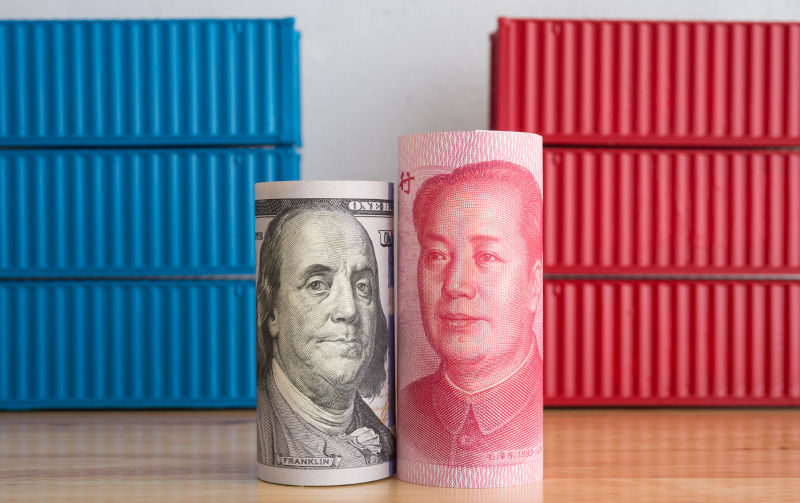China sees remarkable growth in global soft power
October 21, 2023
Almost all geopolitical soft power explanations draw on the seminal analysis by the Harvard political scientist Joseph Nye, who promoted the term in his 1990 book_Bound to Lead: The Changing Nature of American Power. At that time, he wrote, When one country gets other countries to want what it wants (this) might be called co-optive or soft power in contrast with the hard or command power of ordering others to do what it wants._
This soft power is said to rely on culture, performance, political values, and foreign policy to achieve geopolitical change through example and persuasion. When Nye wrote his book, the US was the exemplar, in his view, of how to develop and wield soft power, and he was surely right about this. In the Soft Power Olympics, as it were, the US was the unrivalled champion.
It is thus interesting to read recently, in a serious US outlet, that the US cannot afford to lose a soft power race with China. This was the title of an article written by US Representative Raja Krishnamoorthi, recently published in the leading journal Foreign Policy.
China: A soft-power threat? It isnt easy to imagine anyone writing such an article even 10 years ago in the US. But with each passing decade over the last 40 years, China has witnessed extraordinary progress. This unmistakable, continuing development is what, in essence, has prompted the congressman to pen this article now.
Chinas massive Belt and Road Initiative (BRI), now celebrating its 10th anniversary, is not a perfect success story. However, the problems that have emerged as it has unfolded are primarily a product of its exceptional scale. They have been worked on as they have materialised. Moreover, its overall positive public infrastructure achievements, not least in Africa, have been extraordinary. Imitation is the sincerest form of praise, they say. The US-led West has responded to the BRI with much talk about similar proposals, such as the Build Back Better World program in 2021. So far, compared to the BRI, these Western imitative projects continue to remind one of that American saying: All hat and no cattle.
Consider this example related to Vice-President Kamala Harris visiting Zambia during an African trip earlier this year. Akende Mmembe Chundama, chairwoman of the Socialist Party of Zambia, subsequently observed in an interview that: The second-in-command of the United States journeyed to Zambia and arrived at an airport constructed by China, traveled on a road also built by China, and addressed the Zambian population in a facility gifted to them by China. However, the US vice-president advised the Zambians to not collaborate with China.
Professor Joseph Weiler argued some years ago that there are three types of governance legitimacy: process or input (democratic) legitimacy, performance or output legitimacy, and vision legitimacy. The US constantly stresses its election-based input legitimacy, but it appears, for all to see, to have slipped dramatically in terms of delivering performance legitimacy for its population. And its single bipartisan American Dream today pivots on containing the rise of China. This depressingly negative vision is confirmed in a recent extended essay by former US defence secretary Robert Gates, summarising the ongoing macro-dysfunctionality in the US.
Pearls and Irritations publisher John Menadue recently argued: The future will be decided by economic influence, not military dominance.
Menadues analysis spells out why the US is right to be worried about its soft-power shortfall. He stresses how China understands far better than the West that crucial economic development is what is most important for the Global South, adding that: Chinas strategy is to outflank America economically, technologically, and diplomatically by making it the partner of choice for Third World countries by offering them infrastructure (Belt & Road Initiative), technology (Digital Silk Road) and markets (Strategic Economic Partnerships). By contrast, America offers them military pacts to confront China since it is too protectionist to grant them free trade, too insular to encourage US investment, and too self-centred to offer more aid.
In another recent article, Professor John F. Copper argued: The US has lost the tech war with China. Copper explains how China is working exceptionally hard to improve its research capacity and lift the education experience of its entire (four times as large) population. At the same time, the warlike US sinks deeper into debt and shrinks its commitment to serious mass education and advanced research.
For well over 100 years, the US-led English-language media in all its forms has been dominant globally. What Nye could have stressed in his influential book was the need for intense and continuous marketing of identified American soft-power assets and how this extraordinary media dominance made so much difference. He regarded this pivotal promotional aspect as being an intrinsic facet of soft power rather than treating it as the separate selling of certain values and examples.
This English-language media dominance remains entrenched today. Regarding the marketing of soft-power assets, China thus operates globally at a measurable disadvantage as it needs to promote its narrative in a second language where the competition is formidable and well-organised.
Ultimately, what you are selling is far more critical than marketing razzle-dazzle, whether it is oranges or infrastructure. Chinas unparalleled performance legitimacy (covering poverty relief, high-speed rail, electric vehicles, green technology, and smart chips, for example) confirms why the fundamentals underpinning Chinese soft power are today, comparatively, in very good shape. Moreover, Chinas soft-power assets are now progressively selling themselves across the Global South and beyond.
First published in the China Daily Hong Kong October 18, 2023

